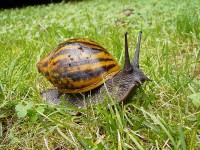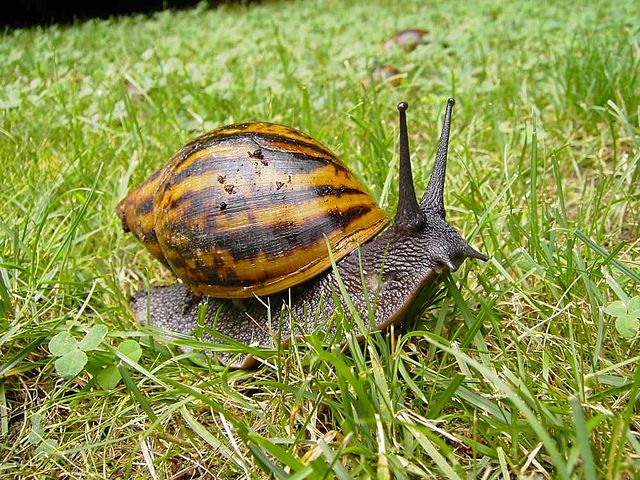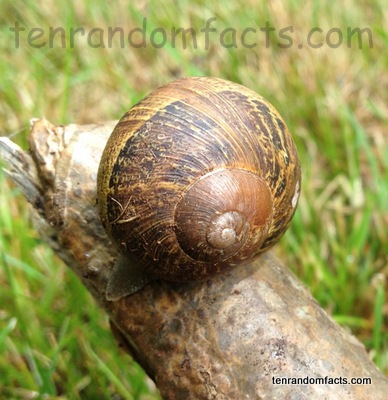
Giant Ghana snails can be beaten in a race but no snail can beat it in size.
- Giant Ghana snails are a species of snail, native to the forests of West Africa, in the countries of Ghana, Sierra Leone, Benin, Togo, Nigeria, Liberia, and Ivory Coast.
- The scientific name of giant Ghana snail is Achatina achatina and it is from the family Achatinidae, a family of large to medium land snails.
- ‘Giant Ghana snails’ are also known as ‘giant tiger land snails’ and ‘tiger snails’, and should not be confused with the closely related ‘giant African snails’ with the scientific name Achatina fulica.
- Giant Ghana snails can reach lengths of 18 to 30 centimetres (7 to 12 inches) making them the largest snails that exist on land, in the world.
- Giant Ghana snails have been introduced to some areas of the United States where they are restricted, and some islands in the Caribbean, where they are considered a pest, while in some locations they are kept as pets.
Giant Ghana Snail
Image courtesy of Wikimedia Commons
- Giant Ghana snails are hermaphrodites and can lay around 30 to 300 eggs at a single time, and they live to be around five to ten years of age.
- Giant Ghana snails can be eaten, sold commercially in parts of Africa, and are a good source of protein.
- The roughly coned shaped shell of a giant Ghana snail is often striped and chestnut to brown in colour, while the actual snail is a blue-grey.
- Giant Ghana snails were originally very common in their native habitat, although their population has decreased in recent times as a result of over-consumption by humans, and habitat loss.
- The diet of giant Ghana snails consists of decomposing vegetation and other plant life that can include vegetables, leaves, grass, flowers and fruit.
Bibliography:
Achatina (Achatina) achatina (Linné, 1758), 2015, Pet Snails, http://www.petsnails.co.uk/species/achatina-achatina.html
Achatina achatina, 2015, Wikipedia, https://en.wikipedia.org/wiki/Achatina_achatina










